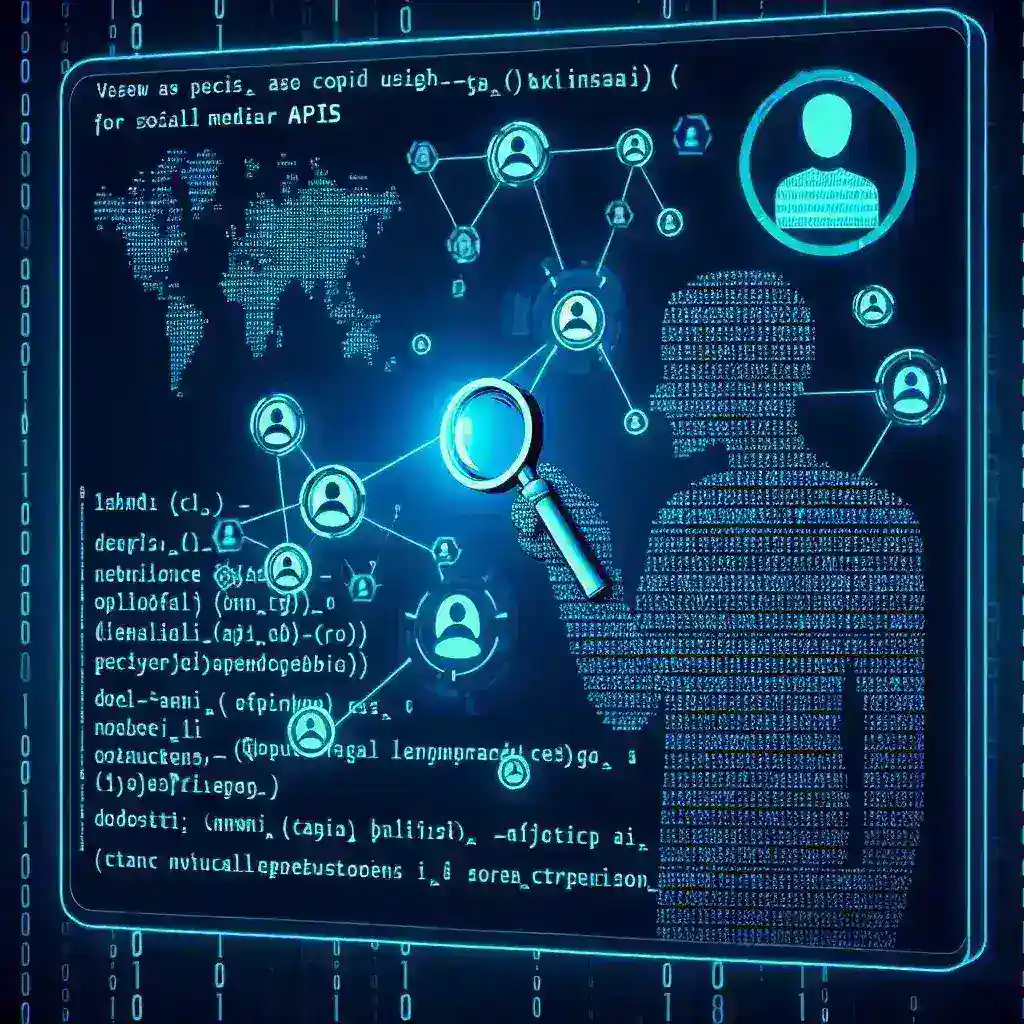Introduction
Social media platforms have become integral to our daily lives, largely due to their robust Application Programming Interfaces (APIs). These APIs enable seamless integration with various applications, enhancing user experiences and expanding functionality. However, with increased reliance on APIs comes heightened security risks. This article delves into the role of hacking, particularly ethical hacking, in securing social media APIs.
Understanding Hacking
Hacking, often misconstrued as a purely malicious activity, encompasses a range of actions aimed at probing systems for vulnerabilities. Ethical hacking, conducted by security professionals, involves authorized attempts to breach systems to identify and rectify security flaws before malicious actors can exploit them.
Ethical Hacking vs. Malicious Hacking
While malicious hackers aim to exploit vulnerabilities for personal gain or disruption, ethical hackers work proactively to strengthen security measures. Ethical hacking operates within legal and organizational boundaries, ensuring that identified vulnerabilities are addressed responsibly.
How Hacking Can Improve Security
Identifying Vulnerabilities
Ethical hackers employ various techniques to uncover weaknesses in social media APIs. By simulating attacks, they can identify potential entry points that could be exploited by malicious actors. This proactive identification allows developers to patch vulnerabilities before they are exploited.
Penetration Testing
Penetration testing involves systematically testing APIs for security weaknesses. Ethical hackers use automated tools and manual techniques to evaluate how well an API withstands different types of attacks, such as SQL injection, cross-site scripting (XSS), and denial-of-service (DoS) attacks.
Bug Bounties
Many social media companies have established bug bounty programs, incentivizing ethical hackers to report vulnerabilities. These programs not only provide financial rewards but also foster a collaborative environment where security is prioritized through continuous feedback and improvement.
Case Studies
Facebook’s Bug Bounty Program
Facebook has one of the most extensive bug bounty programs, encouraging security researchers to find and report vulnerabilities in its APIs. This initiative has led to the discovery and resolution of numerous security issues, significantly enhancing the platform’s overall security posture.
Twitter’s Security Enhancements
Twitter has leveraged ethical hacking to secure its APIs by conducting regular penetration tests and collaborating with security experts. These efforts have helped mitigate risks associated with unauthorized data access and account takeovers.
Best Practices for Securing Social Media APIs
- Implement Strong Authentication: Use robust authentication mechanisms like OAuth to ensure that only authorized users can access the APIs.
- Rate Limiting: Prevent abuse by limiting the number of requests an API can handle within a specific timeframe.
- Data Encryption: Encrypt sensitive data both in transit and at rest to protect it from unauthorized access.
- Regular Audits: Conduct regular security audits and vulnerability assessments to identify and address potential risks.
- Input Validation: Ensure that all inputs are validated and sanitized to prevent injection attacks.
The Role of Hackers in API Security
Hackers, particularly ethical hackers, play a crucial role in fortifying API security. Their expertise in identifying and exploiting vulnerabilities provides invaluable insights into potential security gaps. By collaborating with developers and security teams, hackers help create more resilient and secure APIs.
Challenges and Risks
Potential Misuse of Hacking Techniques
While ethical hacking is beneficial, there is always a risk that knowledge and techniques can be misused by malicious actors. It is essential to establish clear guidelines and ethical standards to mitigate this risk.
Legal and Ethical Considerations
Ethical hackers must operate within legal frameworks and organizational policies. Unauthorized hacking, even with good intentions, can lead to legal repercussions and damage to reputations.
Future Trends
AI and Automated Hacking Tools
The advancement of artificial intelligence is revolutionizing the field of ethical hacking. AI-driven tools can automate the identification of vulnerabilities, making the process more efficient and comprehensive. These tools can adapt to evolving threat landscapes, providing continuous protection for APIs.
Collaborative Security Models
Future security models will likely emphasize collaboration between developers, security experts, and ethical hackers. This integrated approach ensures that APIs are designed with security in mind from the outset, reducing the likelihood of vulnerabilities.
Conclusion
Hacking, when approached ethically, is a powerful tool for securing social media APIs. By identifying and addressing vulnerabilities proactively, ethical hackers help protect user data and maintain the integrity of social platforms. As technology continues to evolve, the collaboration between developers and hackers will remain essential in safeguarding the digital landscape.

